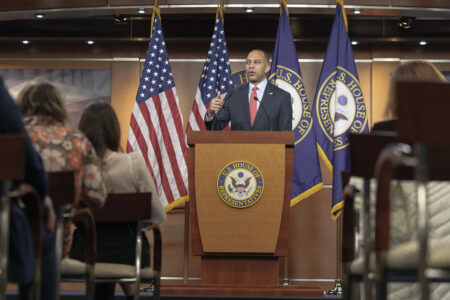Our opinion: Expanding Act 54 won’t save rural fire departments
For the uninitiated, rural Pennsylvania has a growing issue with fire protection and EMS services.
As our rural population drops, there are fewer volunteer firefighters available for fires and, more pointedly, 24-hour EMS response. As those who have been following the issue over the years know quite well, there is no single solution – particularly cheap ones.
A state lawmaker is proposing to make a potential solution available to second-class townships across the state if they and their residents are willing to pay. Rep. Chris Pielli, D-West Chester, sponsored House Bill 393, passed the lower chamber in May with a 120-83 vote – all Democrats and 18 Republicans in favor. It now awaits consideration from the Senate Local Government Committee. The bill expands Act 54, which was signed into law a little more than a year ago, to allow more second-class townships around the state to raise property taxes solely to pay for fire and EMS services while also raising decades-old caps on their taxes from 3 mills to 10 for fire, and from 0.5 to 5 mills for EMS. Increases beyond those limits would still require voter approval.
Currently, Act 54 is limited to second-class townships that border a first-class city in Pennsylvania, effectively limiting it to the Philadelphia suburbs in Bucks, Delaware and Montgomery counties.
“Why would you give this benefit to just one region, and not everyone in the Commonwealth?” Pielli told The Center Square
As we said, expanding Act 54 doesn’t immediately solve the issues we have providing fire and EMS services in rural counties. Even if Pielli’s bill becomes law that doesn’t mean the taxpayers in every second-class township in Pennsylvania have the financial means to pay more in taxes to pay for fire and EMS protection. Pielli’s bill would, however, give townships and taxpayers with the financial means to pay another tool to use to provide fire and EMS services – and that makes House Bill 393 worthy of serious consideration in the state Senate and by Gov. Josh Shapiro.

